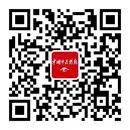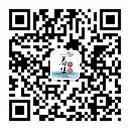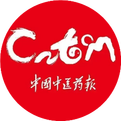The term “Traditional Chinese Medicine” (zhōng yī) originated in the Han Dynasty and is commonly found in two contexts: one is in ancient literature, especially medical texts; the other is as a phrase in proverbs, such as “If you have an illness and do not treat it, you will often receive Traditional Chinese Medicine” and related sayings. Due to the distance from ancient times, people are not very clear about the ancient meaning of “Traditional Chinese Medicine” and even have discrepancies, leading to confusion. This article aims to restore its meaning based on ancient literature and contextual analysis, hoping to assist in the study of TCM literature.
In Han Dynasty medical literature, “Traditional Chinese Medicine” refers to “doctors of intermediate level.” Zhang Ji in the “Jin Kui Yao Lian Jing – General Principles of Diagnosis and Treatment” states: “In ancient times, the top doctors observed the complexion, the intermediate doctors listened to the sounds, and the lower doctors diagnosed by pulse.” The “Ling Shu – Roots and Nodes” has a similar description: “The top practitioners balance the qi, the intermediate practitioners confuse the pulse, and the lower practitioners exhaust the qi and endanger life.” Both examples indicate that “Traditional Chinese Medicine” is equivalent to “intermediate practitioners,” referring to doctors of intermediate skill level. Reviewing medical literature before the Tang Dynasty, “Traditional Chinese Medicine” referred to the treatment level of doctors, often mentioned alongside “top doctors” and “lower doctors.” For instance, Sun Simiao in the “Qian Jin Yao Fang – Volume One – Diagnosis” states: “In ancient times, the good doctors treated the country, the intermediate doctors treated people, and the lower doctors treated diseases.” Liu Zongyuan in the “Yuan Gao Huang Nei Fu” states: “The top doctors attack the signs before they emerge, the intermediate doctors attack those with signs.” It was only after the Song Dynasty that the term “Traditional Chinese Medicine” began to be used alone to refer to the medical level of doctors. Su Shi in the preface of “Su Shen Liang Fang” states: “In my life, I sought medical treatment, and in ordinary times, I silently observed their skills. When I had an illness and sought treatment, I would first fully inform them of my condition, and then seek diagnosis, so that the doctor would clearly understand where the problem lay… Therefore, even if it is Traditional Chinese Medicine, my illness is often cured.”
As a fixed phrase, “Traditional Chinese Medicine” is also seen in proverbs such as “If you have an illness and do not treat it, you will often receive Traditional Chinese Medicine.” This interpretation has the most discrepancies, with four possible readings: one refers to “doctors of intermediate level”; another is a noun phrase indicating “intermediate efficacy”; a third is a verb-object phrase (where “中” is pronounced “zhòng”), meaning “in accordance with medical principles”; and the last interprets the previous “得” (de) and “中” (zhòng) as a phrase meaning “to achieve balance,” with “医” (yī) as a verb meaning “to treat,” indicating “to treat based on achieving a balanced state.” To clarify the meaning of this “Traditional Chinese Medicine,” it is necessary to comprehensively examine the context of the proverb.
First, from the origin of the proverb, “If you have an illness and do not treat it, you will often receive Traditional Chinese Medicine” first appeared in the Eastern Han Dynasty in Ban Gu’s “Han Shu – Arts and Literature.” Its preface to the “Jing Fang” states: “Jing Fang refers to the cold and warm properties of herbs, assessing the severity of diseases, utilizing the flavors of medicines, and adapting to the appropriate conditions, distinguishing the five bitter and six pungent flavors, achieving harmony between water and fire, to open blockages and resolve knots, returning to balance. If one loses the appropriateness, they will increase heat with heat and cold with cold, injuring the vital energy internally, which is not visible externally, and this is what is lost. Therefore, the proverb states: If you have an illness and do not treat it, you will often receive Traditional Chinese Medicine.” From the phrase “therefore the proverb,” it can be inferred that the proverb’s origin predates the Eastern Han Dynasty. Besides the proverb, the preface has two layers of meaning. First, it describes the mechanism of treating diseases with Jing Fang: examining the properties of herbs and the nature of diseases, preparing suitable medicines to restore the body to a healthy state. Secondly, it discusses the adverse consequences of misusing Jing Fang: not understanding the principles of Jing Fang, “increasing heat with heat and cold with cold,” leading to patients “injuring their vital energy internally, which is not visible externally.” The proverb at the end, “If you have an illness and do not treat it, you will often receive Traditional Chinese Medicine,” summarizes the entire preface or merely refers to the misuse of Jing Fang? The concluding preface of the “Jing Fang” states: “Jing Fang are all tools for life, a guard of the king’s officials… Now their skills are obscure, hence the discussion of their texts, categorizing Jing Fang into four types.” This clearly states the purpose of each preface: both “discussing their texts” (emphasizing the connotations of various Jing Fang) and clarifying the specific conditions of “their skills being obscure.” This structure of “explaining the purpose of the techniques + clarifying the gains and losses of the techniques” runs through the medical classics, immortals, and sexual techniques, and the preface of Jing Fang is no exception. Thus, it can be concluded that “If you have an illness and do not treat it, you will often receive Traditional Chinese Medicine” does not summarize the entire preface but rather refers to the misuse of Jing Fang by incompetent doctors. Therefore, it can be further inferred that the semantic background of this proverb is related to the misdiagnosis by incompetent doctors and is unrelated to the treatment of diseases with Jing Fang.
Secondly, from the pragmatic use of the proverb, this saying has given rise to several variations in later generations, such as “If you have an illness and do not treat it, you will often receive Traditional Chinese Medicine,” “Not taking medicine is Traditional Chinese Medicine,” “Not taking medicine surpasses Traditional Chinese Medicine,” and “Not taking medicine is equivalent to Traditional Chinese Medicine.” In the Ming Dynasty, Lu Rong in “Shu Yuan Za Ji” states: “The ancients said ‘not taking medicine for illness is Traditional Chinese Medicine.’ This means that taking medicine incorrectly leads to rapid death, while not taking medicine results in a slower death. If one can find a knowledgeable doctor, there may be hope for recovery. Based on what I have seen, the saying about Traditional Chinese Medicine has its basis.” This confirms that “医” (yī) means “to treat.” In the Ming Dynasty, Shi Kefa in “Ke Cha Xiao Zhuan” recorded the treatment of Ke Cha, a student of Zhu Danxi: “However, Ke Cha adhered to the teachings of Danxi, claiming to often receive Traditional Chinese Medicine, comparing himself to Li Yingong in warfare, neither achieving great victories nor suffering great defeats.” The “often receiving Traditional Chinese Medicine” here also refers to a treatment effect of “neither great victories nor great defeats.” In the Qing Dynasty, Xu Lingtai in “Yixue Yuan Liu Lun – Discussion on Light Medicines Curing Diseases” elaborated on the meaning of “Traditional Chinese Medicine”: “There is an ancient saying ‘not taking medicine is Traditional Chinese Medicine,’ which has existed since before the Song Dynasty. This is because the medical path has been lost, and many treatments are erroneous. Patients cannot discern the quality of doctors, hence they do not take medicine. Although they may not recover from their illness, they will not be harmed by the medicine. Moreover, if the illness is not fatal, external symptoms gradually recede, and internal injuries gradually recover, they can also heal themselves, hence the term Traditional Chinese Medicine.” Clearly, “Traditional Chinese Medicine” is synonymous with the earlier mentioned “neither great victories nor great defeats,” meaning “intermediate efficacy.” The “Zhou Li – Tian Guan – Medical Officer” once evaluated the medical level of doctors: “Ten completions are the best, ten failures once, ten failures twice, ten failures thrice, ten failures four times are the worst.” Han Dynasty scholar Zheng Xuan commented: “Those who fail four times are at the bottom, five means half, or they may heal themselves.” Qing Dynasty scholar Sun Yirang pointed out that the meaning of “If you have an illness and do not treat it, you will often receive Traditional Chinese Medicine” is the same as Zheng Xuan’s “five means half, self-healing.” Zheng Xuan stated that “ten failures five” only has a 50% healing rate. It can be seen that the “Traditional Chinese Medicine” in the proverb refers to a “50% cure rate,” that is, “intermediate efficacy.”
In summary, the ancient meaning of “Traditional Chinese Medicine” has two aspects: one is “doctors of intermediate level,” and the other is “intermediate efficacy.” (Luo Baozhen, Fujian University of Traditional Chinese Medicine)
This article is an original content of the China Traditional Chinese Medicine News. If reprinted, please indicate the source from the China Traditional Chinese Medicine News WeChat (cntcm1989).
Editor: Zhu Luyun

Learn about Traditional Chinese Medicine here, learn to maintain health here—


Official WeChat account of China Traditional Chinese Medicine News: cntcm1989
WeChat account of China Traditional Chinese Medicine News – Health China: yangsheng-cn

